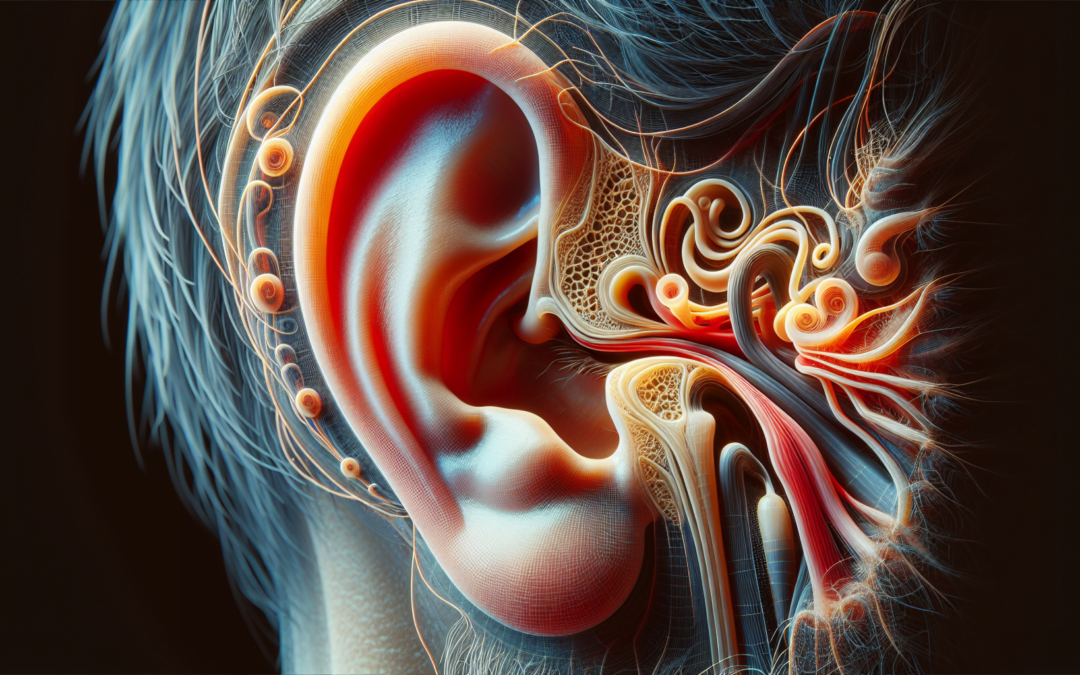Have you ever experienced a sudden change in your ability to hear? It can be quite disorienting and alarming, leaving you feeling disconnected from the world around you. In this article, we will explore the phenomenon of sudden hearing loss, shedding light on its causes, symptoms, and potential treatment options. So, if you’ve ever wondered what might cause such an unexpected and unwelcome change, join us as we delve into the world of sudden hearing loss.
Understanding Sudden Hearing Loss
Sudden Hearing Loss: Definition and Symptoms
Sudden hearing loss refers to a rapid onset of hearing loss in one ear or both ears. This condition typically occurs within a span of 72 hours, and the severity can range from mild to profound. The symptoms of sudden hearing loss may vary from person to person, but they commonly include a sudden decrease in hearing ability, a feeling of pressure or fullness in the affected ear, tinnitus (ringing or buzzing in the ear), and sometimes dizziness or vertigo. It is important to seek immediate medical attention if you experience any sudden changes in your hearing.
Causes of Sudden Hearing Loss
The exact causes of sudden hearing loss are often unclear. However, several potential factors have been identified as possible triggers for this condition. In some cases, a viral infection, such as a cold or flu, can lead to sudden hearing loss. Other possible causes include head trauma, exposure to loud noises, certain medications, autoimmune diseases, and circulation problems affecting the blood vessels supplying the inner ear. It is crucial to consult a healthcare professional to determine the underlying cause of sudden hearing loss, as this can guide appropriate treatment options.
Risk Factors for Sudden Hearing Loss
While sudden hearing loss can affect anyone, certain risk factors may increase your chances of experiencing this condition. Individuals over the age of 40 are more susceptible to sudden hearing loss, and the risk further increases with age. Additionally, a history of sudden hearing loss in one ear increases the likelihood of experiencing it in the other ear. Other risk factors include smoking, high blood pressure, diabetes, a family history of hearing loss, and frequent exposure to loud noises. Taking note of these risk factors can help you be proactive in protecting your hearing health.
Diagnosing Sudden Hearing Loss
Diagnosing sudden hearing loss involves a comprehensive evaluation by a healthcare professional, such as an otolaryngologist or an audiologist. The process typically begins with a thorough examination of your ears, including checking for any blockages or infections. Further diagnostic tests, such as audiometric testing or a pure-tone audiogram, may be conducted to assess the degree and nature of the hearing loss. In some cases, additional imaging studies, such as an MRI or a CT scan, may be necessary to rule out any underlying structural issues. Seeking prompt medical attention is crucial for a timely diagnosis and appropriate management of sudden hearing loss.
Complications of Sudden Hearing Loss
Although sudden hearing loss can be distressing on its own, it can also lead to several other complications if left untreated. One of the potential consequences is social isolation and communication difficulties. Hearing loss can make it challenging to participate in conversations, leading to feelings of frustration and withdrawal from social interactions. Moreover, untreated hearing loss has been associated with an increased risk of depression, anxiety, and cognitive decline. It is important to address sudden hearing loss promptly to minimize the potential complications and improve overall quality of life.
Treatment Options for Sudden Hearing Loss
The treatment approach for sudden hearing loss depends on various factors, including the underlying cause, the severity of the hearing loss, and individual preferences. In some cases, spontaneous recovery may occur without any intervention. However, prompt medical attention is crucial, as early treatment can greatly improve the chances of recovery. Treatment options may include corticosteroids, which help reduce inflammation and promote healing in the inner ear. Other medications, such as antivirals or vasodilators, may also be prescribed depending on the suspected cause. In certain cases, hearing aids or cochlear implants may be recommended to compensate for any residual hearing loss.
Coping with Sudden Hearing Loss
Receiving a diagnosis of sudden hearing loss can be challenging, but there are various coping strategies that can help you adapt and thrive. It is important to communicate openly with your healthcare team and seek support from family and friends. Hearing loss support groups and online communities can provide a platform for sharing experiences, tips, and emotional support. Assistive devices, such as captioned telephones or hearing aid accessories, can enhance communication in different settings. Additionally, practicing good self-care, managing stress, and prioritizing your overall well-being can contribute to a positive outlook and optimal adjustment to life with sudden hearing loss.
Preventing Sudden Hearing Loss
While not all cases of sudden hearing loss can be prevented, there are steps you can take to protect your hearing health. Minimizing exposure to loud noises, either by wearing hearing protection or keeping the volume at a reasonable level, is crucial. If you work in a noisy environment, it is essential to follow occupational safety guidelines and use hearing protection devices. Avoiding recreational activities that involve excessive noise exposure, such as attending loud concerts without hearing protection, can also reduce your risk. Regular check-ups with an audiologist and maintaining a healthy lifestyle, including managing underlying medical conditions, can contribute to preserving your hearing health.

Impact of Sudden Hearing Loss on Daily Life
Sudden hearing loss can have a significant impact on various aspects of daily life. Communication can become challenging, especially in noisy environments or during phone conversations. Difficulties in understanding speech may also affect relationships and social interactions. It is common to experience frustration, stress, and a sense of isolation due to the limitations caused by hearing loss. However, with appropriate treatment strategies, assistive devices, and support systems in place, individuals with sudden hearing loss can continue to engage in their daily activities and maintain fulfilling relationships.
Support and Resources for Individuals with Sudden Hearing Loss
If you or someone you know has been diagnosed with sudden hearing loss, it is essential to access available support and resources. Local hearing loss associations and organizations often provide educational materials, counseling services, and support groups for individuals and their families. Hearing healthcare professionals can offer guidance on various assistive devices and technologies that can enhance communication and quality of life. Online resources, such as websites and forums dedicated to hearing loss, can also provide valuable information and a platform for connecting with others who have similar experiences. Remember, you are not alone, and there are resources available to help you navigate through the challenges of sudden hearing loss.



